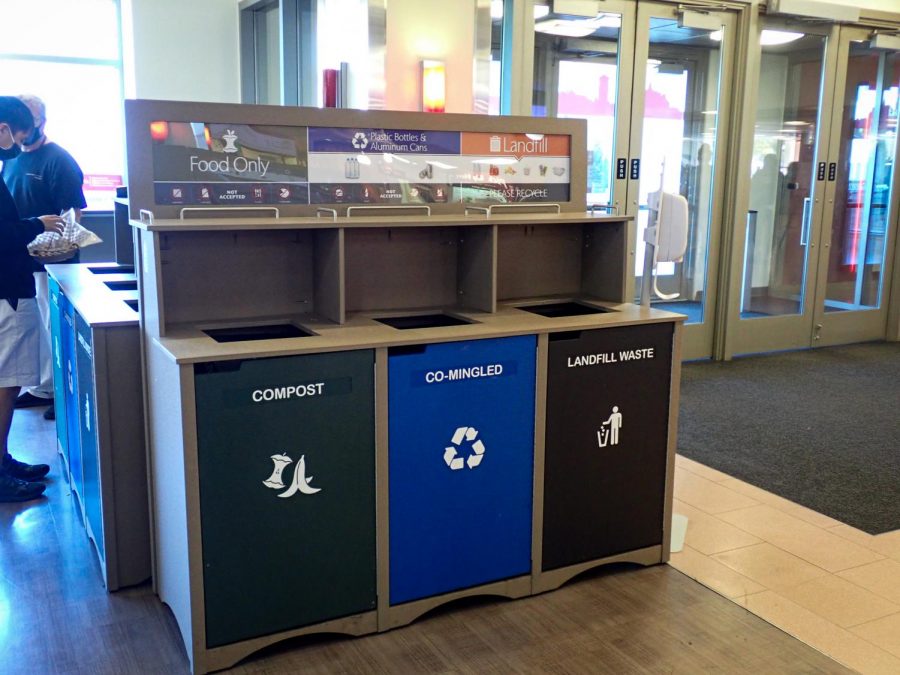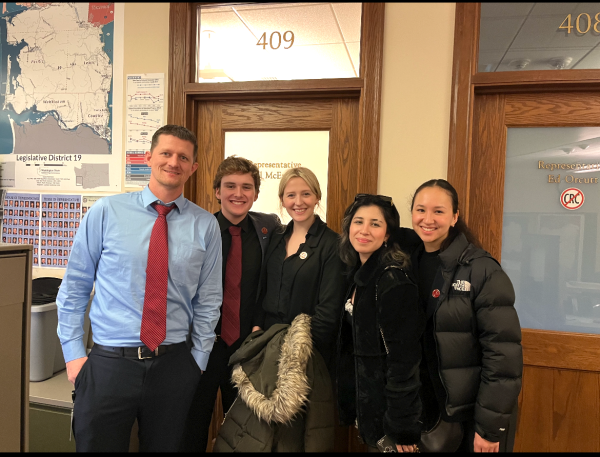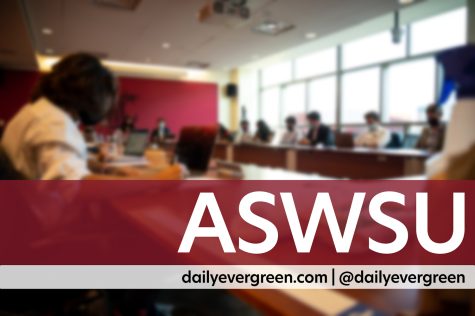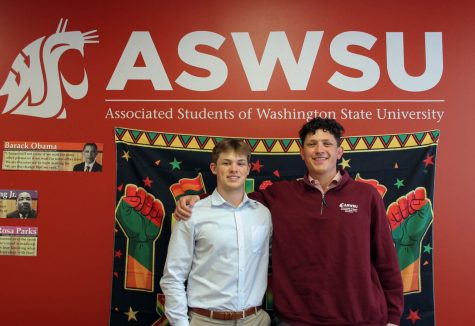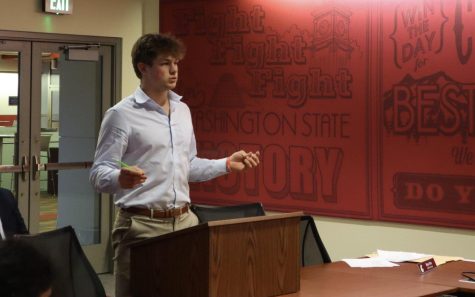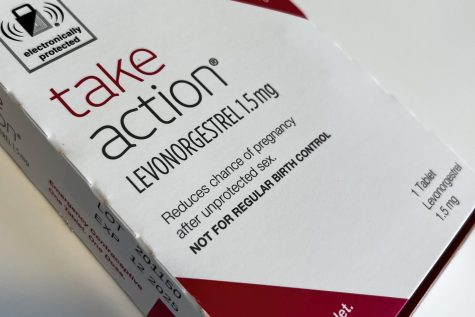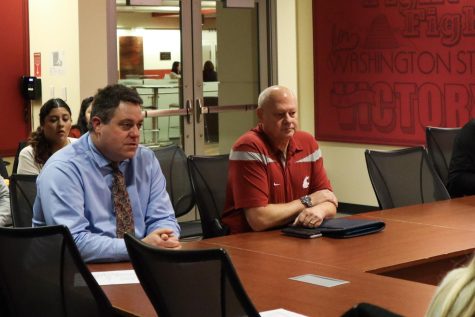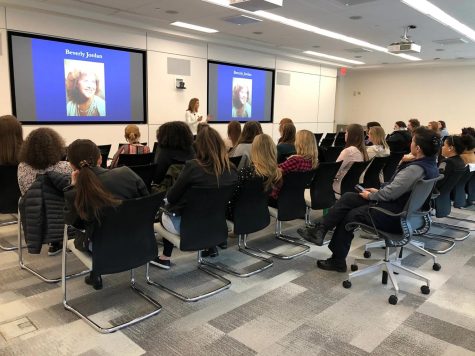On-campus groups promote recycling, sustainability
Green door waste receptacles converted back to recycling; ESA aims to start community garden
Three-door waste receptacles got too contaminated in previous years, so Waste Management had to switch them to landfill waste.
September 28, 2021
Waste Management at WSU is working to make the campus more environmentally friendly through increased recycling efforts and other initiatives.
Waste Management’s goal is to limit what goes in the garbage as much as possible because all garbage goes into a landfill, according to the Waste Management website. When the trash goes to the landfill, it pollutes soil and air and goes into animal’s habitats.
When the WSU community is composting and recycling, less trash goes into the garbage, meaning the landfill has less trash in it, according to the website. However, many people are not sure what things can be put into the compost and recycle.
All food should go into compost. Recyclable items are paper, clean cans, clean milk cartons, cardboard and thick plastics, according to the website. WSU separates its recycling, so there should be a labeled bin for each type of recyclable item.
Some recycle locations do not have bins for all of those recyclables. For example, residence halls do not have paper recycling. Only certain buildings have office paper recycling. If a building wants office paper recycled, they have to request it, said Waste Management Coordinator Nathan Kite.
WSU is not as environmentally friendly as it could be because lower-grade plastic is not recyclable here. Waste Management deals with number one and number two recyclable items, Kite said.
“Some of it is value, the value we get for the plastic,” Kite said. “But a lot of it is the brokers that buy our recycling only want to deal with number one and number two, sometimes number three, and because that’s the higher plastic that’s more recycled.”
There have been a variety of different environmental changes on campus to make WSU more environmentally friendly. WSU Facilities Services installed water bottle filling stations across campus, which has decreased the amount of plastic consumed, he said.
Before the pandemic started, there was a push for students to bring their own reusable containers into dining halls, but the pandemic made single-use containers necessary, Kite said.
Waste Management is currently working on a project with three green door waste receptacles. They got too contaminated in previous years, so Waste Management had to switch them to landfill waste, he said. This past year, Waste Management switched the receptacles back to recycling.
Another major goal is to increase recycling at WSU sporting events, Kite said.
ASWSU Environmental Sustainability Alliance is also working to make WSU as environmentally friendly as possible. ESA gets a certain amount of money through the Green Fund and it spends the money on sustainability projects. In the past, it created a massive greenhouse and a solar panel project, said ESA Chair Stevie Fawcett.
One of ESA’s big goals is easy access to recycling. The residence halls and on-campus apartments only have limited recycling and paper isn’t an option to recycle, Fawcett said.
“I think that every single type of waste management option should be given to every single student no matter where they live and what their living situation is,” Fawcett said.
ESA has an ongoing project to bring solar-powered electric scooters and bikes to the Pullman campus, he said.
ESA supports other organizations in their environmental efforts, he said. For example, if the Environmental Science Club wanted to do a $2,000 project, ESA would be there to help support them financially.
ESA also hopes to either create a community garden or spread awareness about how eating habits impact the environment, Fawcett said.
Both Waste Management and ESA want people to get involved and offer environmental suggestions and feedback. ESA has meetings at 6 p.m. Tuesdays in room 206 at the Compton Union Building.

